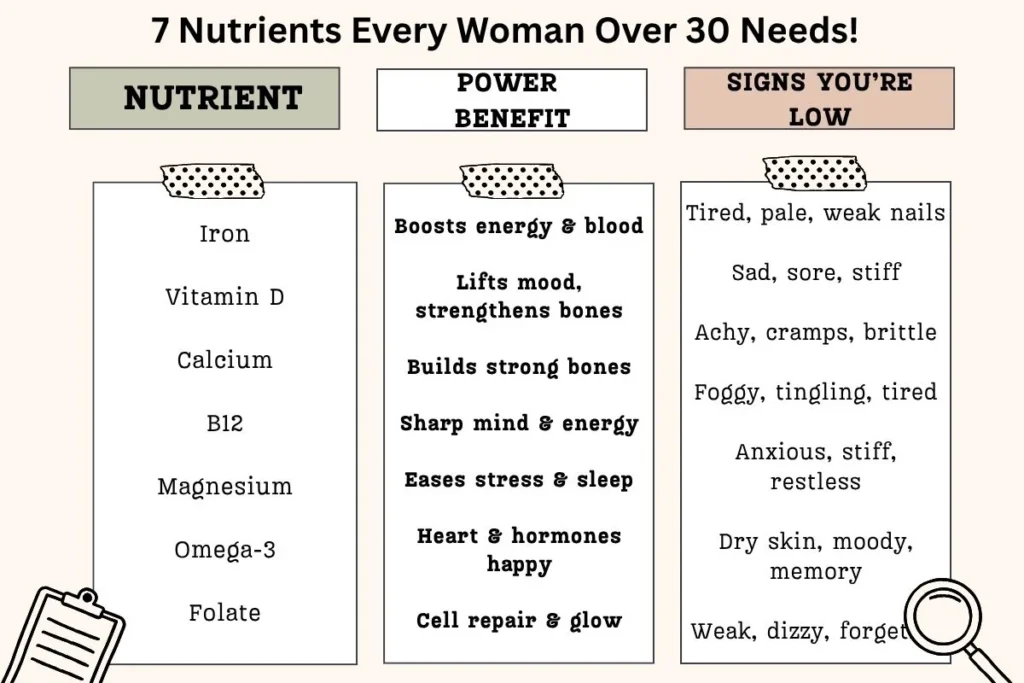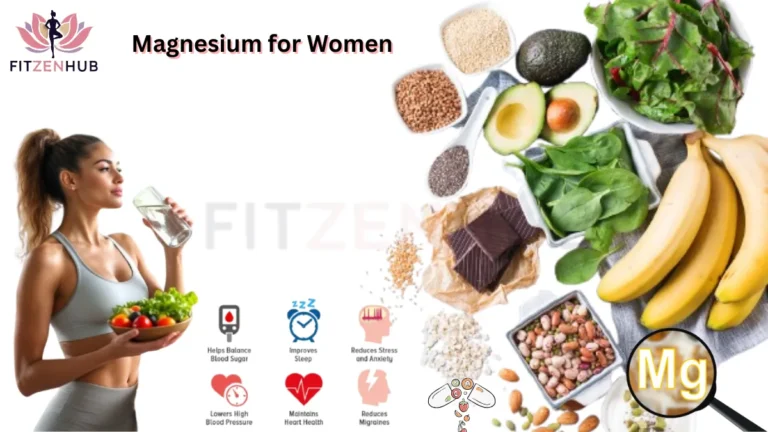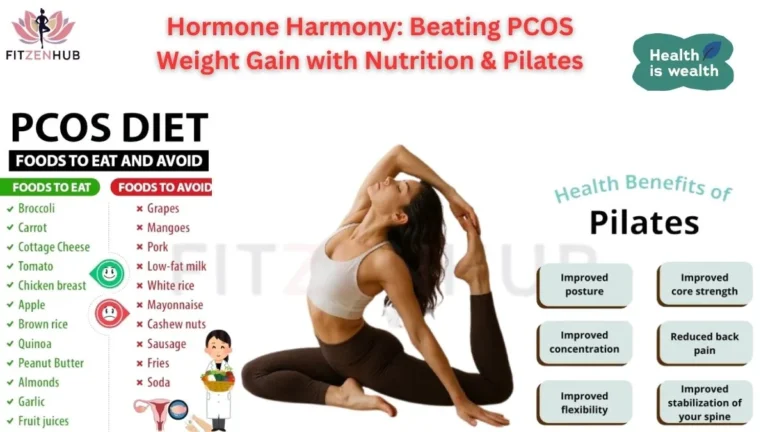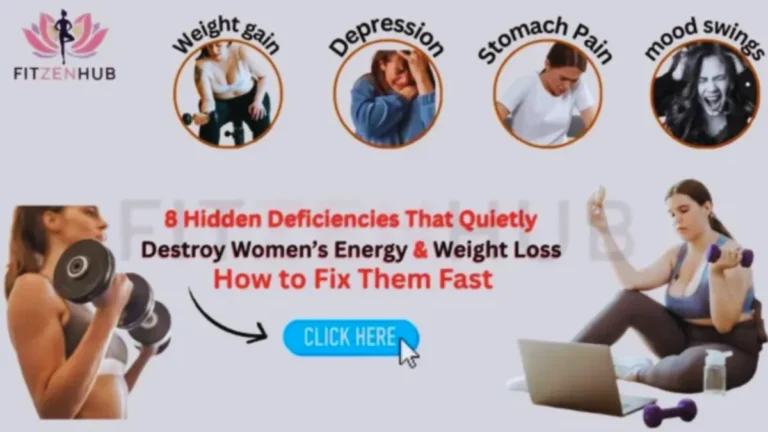🌸 Wondering if multivitamins really work for women? Discover the science-backed truth about how daily supplements can boost your energy, mood, immunity, and hormonal balance — especially after 30. Feel better, naturally!
🔬 Science, Myths, and the Real Results Every Woman Deserves to Know
Multivitamins are often marketed as the magic bullet for women’s health — promising glowing skin, boundless energy, and hormone harmony. But what does the science actually say?
✅ The Science:
- Studies show multivitamins can fill key nutritional gaps, especially for women over 30 who face hormonal shifts, reduced nutrient absorption, and busy lifestyles.
- They may support immune strength, mental clarity, and reproductive health when taken consistently.
- Ingredients like Vitamin D, B12, Iron, Magnesium, and Folate are often deficient in women — and multivitamins help cover that.
❌ The Myths:
- “Multivitamins work instantly” — FALSE. Results usually show after 3–8 weeks of consistent use.
- “If you eat healthy, you don’t need them” — Not always. Stress, poor sleep, and gut health can still cause deficiencies.
🎯 The Real Results:
- Women report better mood, fewer energy crashes, and reduced PMS symptoms after adding a tailored multivitamin to their daily routine.
- Over time, it supports hair health, nail strength, and skin glow — especially when combined with a balanced diet and gut health support.
✨ You don’t need “magic.” You need consistency, science, and the right formula for your body.

👩⚕️ Why Are So Many Women Taking Multivitamins?
Let’s be real — modern womanhood is a nutrient battlefield.
Between irregular meals, stressful work hours, lack of sunlight, hormone shifts, and processed food… it’s no wonder women are popping multivitamins daily like they’re a magic fix.
But here’s the catch:
“Feeling tired, bloated, or mentally foggy doesn’t always mean you need more vitamins. Sometimes, you just need to absorb what you already eat better.”
So what’s going wrong?
🔬 What Science Says (And Doesn’t Say) About Multivitamins
📌 Harvard & JAMA Findings:
- A 10-year Harvard study (JAMA, 2012) showed no significant reduction in heart disease or cancer from multivitamin use in women.
- Many vitamins get urinated out unused if your body doesn’t need them or can’t absorb them well.
✨ The Placebo Effect Is Real
In some studies, people who believed their multivitamin helped them — actually felt better, even if the vitamin did nothing.
Your brain is powerful. But is that worth $30/month?
📉 Over-supplementing Can Backfire
- Too much Vitamin A = liver stress
- Too much Iron = digestive problems
- Synthetic B6 = nerve damage in long-term high doses
🧬 When Multivitamins Actually Help (And Change Lives)
Here’s when supplements can transform your health:
| Situation | Multivitamin Might Help? | Why |
|---|---|---|
| Women with poor diets | ✅ | Fills obvious nutrient gaps |
| Vegans/Vegetarians | ✅ | Hard to get B12, Iron, Omega-3s from plants |
| Women over 35 | ✅ | Declining absorption of key nutrients |
| Pregnant women | ✅ | Need folate, DHA, iodine for baby’s development |
| Healthy eaters with great digestion | ❌ | Often unnecessary — might be overkill |
🧠 Your Body Doesn’t Just Need Pills — It Needs Absorption
Taking a vitamin ≠ absorbing a vitamin.
If your gut is inflamed, stressed, or lacking healthy gut bacteria, even the best supplement won’t do much.
Focus on gut health first.
- Eat fermented foods
- Avoid ultra-processed junk
- Manage stress and sleep
- Then maybe consider supplements
🛑 5 Myths Women Believe About Multivitamins
❌ Myth 1: “I Eat Healthy, So I Don’t Need a Multivitamin.”
Even clean eaters miss key nutrients like Vitamin D, B12, and Iron — especially if you’re vegan, over 30, or have gut absorption issues.
❌ Myth 2: “Multivitamins Work Instantly.”
Nope! Real change takes time. Most women start noticing energy, mood, and skin improvements after 3–8 weeks of daily use.
❌ Myth 3: “All Multivitamins Are the Same.”
Generic pills ≠ results. Women need age-specific, hormone-supportive formulas. Look for clean, bioavailable ingredients — not fillers.
❌ Myth 4: “They’ll Make Me Gain Weight.”
False. Multivitamins don’t contain calories or hormones that lead to weight gain. In fact, some support metabolism and appetite control.
❌ Myth 5: “If It’s Not Working Fast, It’s Not Working.”
Multivitamins build your body’s internal reserves — helping with long-term immunity, hormonal balance, and energy. Patience = progress.
🛒 If You DO Buy a Multivitamin, Check for These:
- 💊 Methylated B12 & Folate — better for mood, energy, hormone health
- ⚙️ Chelated Minerals — easier on digestion
- 🍃 Third-party tested (NSF or USP seal)
- 🚫 No fillers (like talc, titanium dioxide, artificial colors)
Bonus tip: Consider taking them with fat and in the morning — better absorption and energy support.
💡 Real Alternatives That Actually Work Long-Term
| Need | Try This Instead |
|---|---|
| Daily energy | Magnesium + Omega-3 + better sleep |
| Hormone balance | Zinc + stress control + cruciferous veggies |
| Better skin | Collagen + Vitamin C + gut health reset |
| Mood support | B-complex (methylated) + walking in sunlight |
| Immunity | Vitamin D3 + probiotics + hydration |
Sometimes, targeted supplementation beats the shotgun approach.
🧘♀️ A Real Talk Moment
If you’re taking a multivitamin because you feel lost, tired, anxious, or out of sync with your body — it’s not a failure.
It’s just a signal.
A nudge to slow down and ask:
✨ What does my body really need today?
Maybe it’s rest.
Maybe it’s a better breakfast.
Maybe it’s time to stop outsourcing your health to a tablet.
💊 Vitamin D & Iron Needs Calculator
✅ Should You Take a Multivitamin?
Yes, if:
- You eat poorly or have gut issues
- You’re vegan or over 35
- You’ve tested low in nutrients
No, if:
- You eat well, feel fine, and just believe it’s a “must-have”
🔥 Your Next Step
Instead of guessing…
➡️ Ask your body.
➡️ Get basic bloodwork.
➡️ Try eating like your health depends on it (because it does).
And if you still need help?
👉 Stay tuned — we’re creating a free Women’s Smart Supplement Guide
Read More: What are 7 science-backed ways women can regain control and energy?
📚 Trusted Sources:
- Harvard T.H. Chan School of Public Health – Multivitamin Use
- NIH Office of Dietary Supplements – Women’s Health
- Cleveland Clinic – Do You Really Need a Multivitamin?
- Mayo Clinic – Vitamins and supplements
✅ Final Thought:
Multivitamins aren’t a magic bullet — but for many women, especially over 30, they fill in key nutritional gaps caused by modern diets, stress, aging, and hormonal shifts. If you feel chronically tired, moody, or your skin and hair aren’t thriving like they used to, a high-quality, women-specific multivitamin could help reboot your system from the inside out.
🧘♀️ When paired with proper hydration, gut health, and balanced meals, multivitamins can become a daily ritual for better energy, mood, skin, and long-term wellness.
❓FAQs: Do Multivitamins Help Women?
Q1. Do women over 30 really need multivitamins?
Yes. Aging affects absorption of key nutrients like B12, Vitamin D, and calcium. Multivitamins support bone strength, hormone balance, and energy production.
Q2. How long before I feel results?
Typically, 3 to 8 weeks of consistent use is needed to notice subtle shifts in energy, mood, hair, and skin.
Q3. Can multivitamins improve mental clarity or mood?
They may help. B-vitamins, magnesium, and omega-3s support cognitive function, reduce fatigue, and stabilize mood swings.
Q4. Are gummy vitamins just as effective?
Not always. Gummy vitamins often lack key nutrients (like iron), and contain sugar or artificial additives. Look for clean, third-party tested capsules.
Q5. Should I take them with food?
Yes! Most vitamins, especially fat-soluble ones (A, D, E, K), are better absorbed with a meal containing healthy fats.







